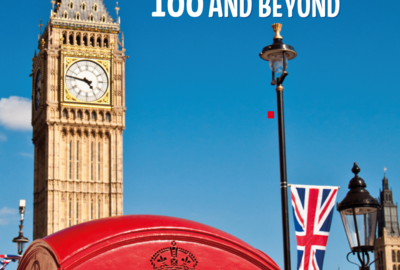
Idioms: Definition and Examples

Learn English on your Vacation
Make international contacts on your language study trip and quickly improve your English!
Idiom Definition: What is an Idiom?
An idiom is a fixed expression or phrase in a language that has a figurative or metaphorical meaning that is different from the literal meaning of its individual words.
Idioms are used to express ideas, emotions, or concepts in a special and frequently colorful way. They are an essential component of a language's culture. These expressions are frequently used and understood by native speakers, and because they frequently defy literal interpretation, it can be difficult for non-native speakers to comprehend what they mean.
Idioms are a form of linguistic creativity and their meanings are often deeply rooted in the cultural and historical context of the language. They can be used to add vividness, humor or emphasis to communication. They play a significant role in making languages more expressive and dynamic. "Break a leg," "kick the bucket," and "raining cats and dogs" are some examples of idioms.
Idioms in different countries
The English language has it's origin in England but the language has been spoken and improvised in various countries due to early colonization.
Idioms are a fascinating aspect of language that adds richness and cultural depth to English-speaking countries around the world. In Britain, idioms like "Bob's your uncle" and "the bee's knees" are commonly used to add charm and express enthusiasm. The United States, on the other hand, boasts idioms such as "burning the midnight oil" and "hit the hay," which reflect American industriousness and pragmatism. Meanwhile, Australia's unique idioms like "no worries" and "flat out like a lizard drinking" capture the country's laid-back attitude and affinity for the outdoors. While these idioms may seem peculiar or perplexing to outsiders, they are cherished expressions that reflect the diverse cultures and lifestyles of these English-speaking nations.
We can say there exists forms of English like American English, Australian English and Canadian English. All of these lanuages are the same but the dialects and the way of sentence framing and pronunciations differ. This is reflected in the way the idioms are used in the countries.
British Idioms
| Idioms | Definition | Example | |
|---|---|---|---|
| Bob's Your Uncle | It means "there you go" or "everything is sorted." | There's the recipe – add the ingredients, and Bob's your uncle | |
| The Bee's Knees | Used to describe something excellent or outstanding. | That vintage car is the bee's knees, a real classic. | |
| Donkey's Years | It means "a long time." | I haven't been to the beach in donkey's years. | |
| Blowing a Raspberry | Making noise by sticking out your tongue between your lips | He didn't like the idea and responded by blowing a raspberry. | |
| Costs an Arm and a Leg | Refers to something that is very expensive. | Getting that new phone would cost an arm and a leg. | |
| In a Pickle | To be in a difficult or troublesome situation. | When the car broke down in the middle of nowhere, we were in a pickle. | |
| Keep a Stiff Upper Lip | To remain resolute and unemotional in the face of adversity. | Despite the adversity, she kept a stiff upper lip. | |
| It's Not My Cup of Tea | Means "it's not something I like" or "it's not my preference." | Horror movies are not my cup of tea; I prefer comedies. | |
| Chin Up | An expression of encouragement, suggesting that one should remain positive in difficult times. | Chin up, things will get better eventually. |
American Idioms
| Idioms | Definition | Example | |
|---|---|---|---|
| Burning the Midnight Oil | Working late into the night to complete a task or meet a deadline. | He's been burning the midnight oil to finish that project on time. | |
| A Piece of Cake | Refers to a task or situation that is very easy to accomplish. | Don't stress; the exam was a piece of cake. | |
| Hit the Hay | To go to bed or to sleep. | After a long day at work, I just want to hit the hay. | |
| Break a Leg | A way to wish someone good luck, especially in the entertainment industry. | Before the audition, the director said, "Break a leg!" | |
| Bite the Bullet | Facing a difficult or unpleasant situation with courage. | She knew she had to bite the bullet and apologize. | |
| Cost an Arm and a Leg | Refers to something that is very expensive. | Getting that new phone would cost an arm and a leg. | |
| On Cloud Nine | Feeling extremely happy or euphoric. | Winning the lottery left her on cloud nine for weeks. | |
| Kick the Bucket | To die or pass away. | When the old car finally stopped running, it had kicked the bucket. | |
| Jump the Gun | Acting prematurely or without proper preparation. | Don't jump the gun, let's wait for the official announcement. | |
| A Dime a Dozen | Refers to something common and easily found. | Those cheap sunglasses are a dime a dozen. | |
| Don't count your chickens before they hatch | It means not to overestimate without calculated results | I hold him to not buy the Porsche before the Christmas bonus because it is not good to count your chickens before they hatch |
Australian Idioms
| Idioms | Definition | Example |
|---|---|---|
| As Dry as a Dead Dingo's Donger | Extremely dry or arid conditions. | During the drought, the farm's fields were as dry as a dead dingo's donger. |
| Flat Out Like a Lizard Drinking | Working at full speed or being extremely busy. | I've been flat out like a lizard drinking all day trying to finish these tasks. |
| He's a Few Sandwiches Short of a Picnic | Someone who is not very intelligent. | I tried explaining it to him, but he's a few sandwiches short of a picnic. |
| Fair Dinkum | Authentic, genuine, or truthful. | Is that story fair dinkum, or are you just pulling my leg? |
| Chuck a U-ey | To make a U-turn while driving. | I missed the exit, so I had to chuck a U-ey to get back on track. |
| The Bush Telegraph | The informal communication network in rural areas. | News travels fast in the outback thanks to the bush telegraph. |
| Spit the Dummy | To throw a tantrum or become very upset | When he lost the game, he spat the dummy and stormed off the field. |
| Mad as a Cut Snake | Extremely angry or agitated. | Don't talk to him right now; he's mad as a cut snake. |
| Up a Gum Tree | In a difficult or challenging situation. | Without a map, we were up a gum tree in the middle of the bush. |
Conclusion
English idioms are like colorful brushstrokes on the canvas of language, adding depth and character to our conversations. While they may seem puzzling at first, understanding their meanings and using them appropriately can make your English communication more engaging and expressive. So, the next time you encounter an idiom, remember the definition and examples provided here and you'll be well on your way to mastering these linguistic treasures.



